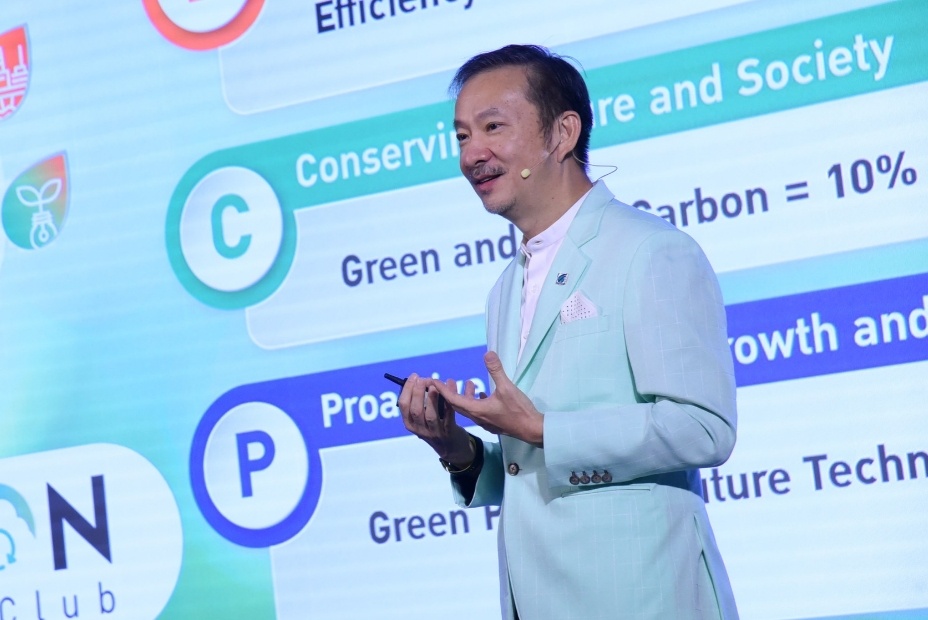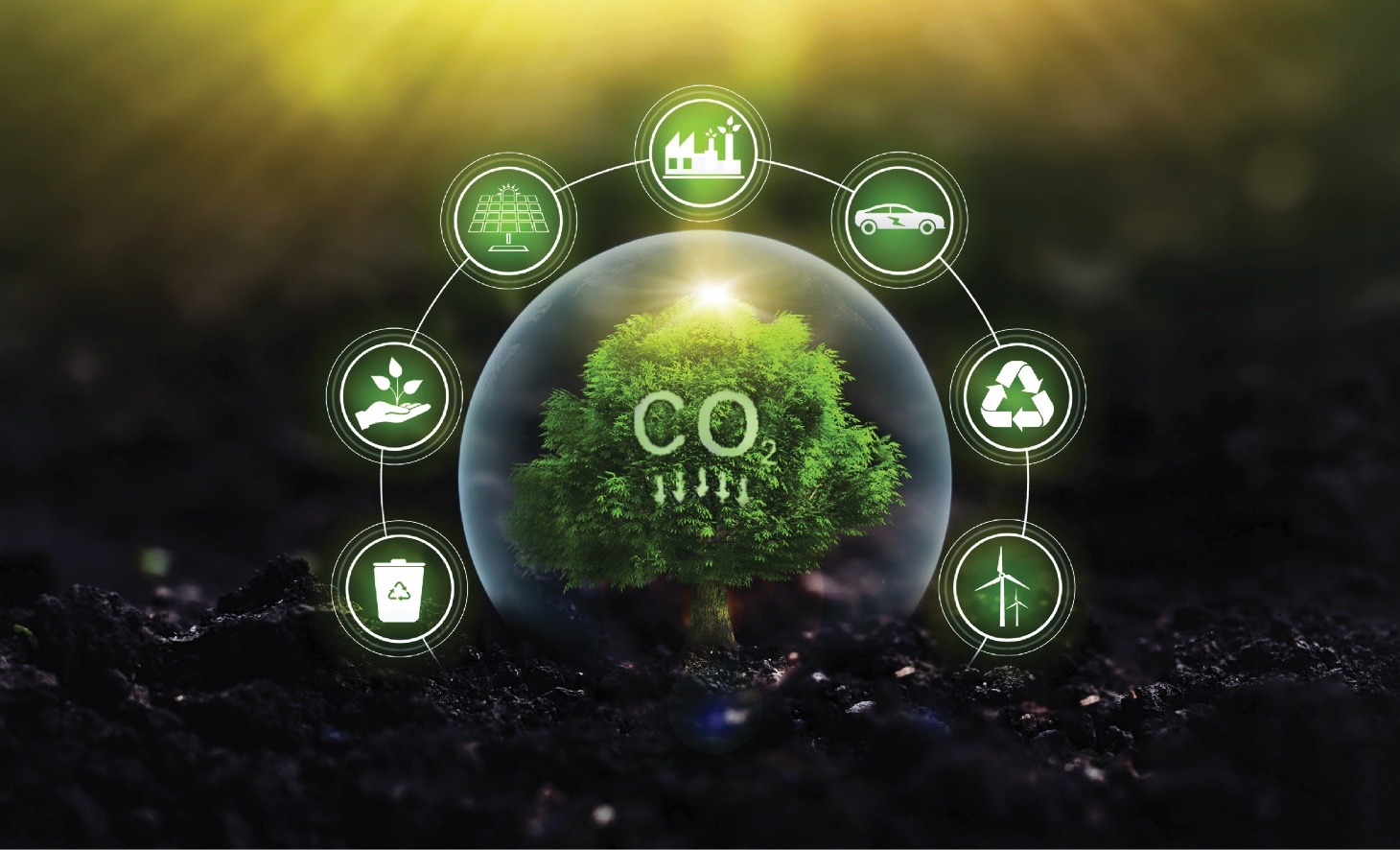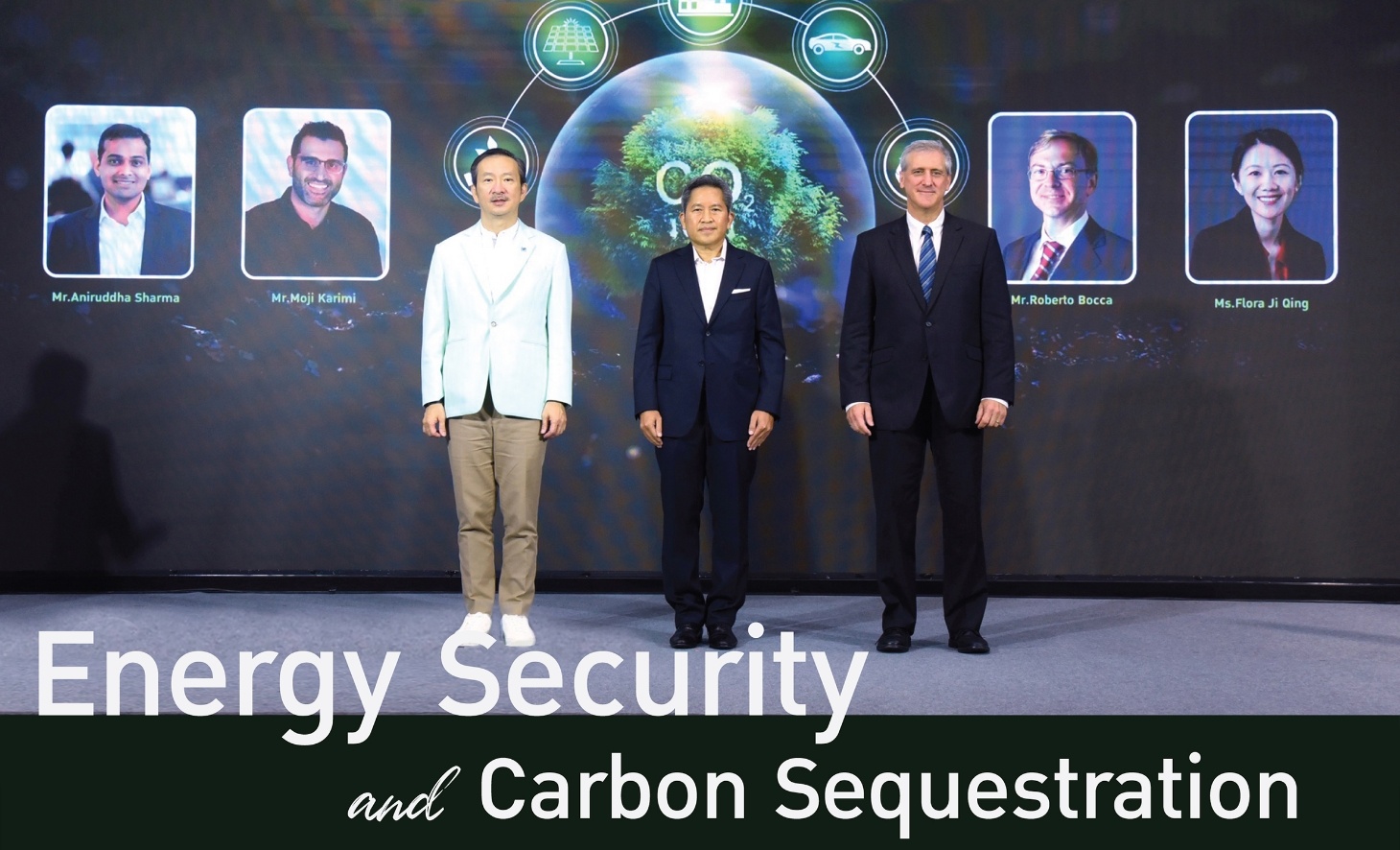11 November 2022
“Energy in Harmony with Nature” Energy Security and Environmental Sustainability
Balance through Natural and Technological Carbon Sequestration and Storage

Did you know, the world consumes an equivalent of 1.7 trillion joules (EJ) daily, equivalent to a Boeing 747 traveling around the world more than 100,000 times, or 5,000 trips to the Moon; an enormous amount of energy.
Information shared during the special talk by Chaiwat Kovavisarach, Group Chief Executive Officer and President, Bangchak Corporation Public Company Limited titled “Energy Security and Carbon Sequestration” at the Bangchak Group Annual Seminar, held annually since 2011, raise public awareness and cooperation to address pressing environmental or social concerns.
Given the aforementioned enormous energy consumption, energy transition cannot occur overnight, and therefore fossil fuels will continue to play a critical role for decades to come. Bangchak Group prioritizes Balancing the Energy Trilemma, specifically, Energy Security, Energy Affordability, and Environmental Sustainability.

“The world consumes a lot of energy, thus the clean energy transition requires considerable time and capital investment, as well as the appropriate technology to help build a new ecosystem, albeit clear energy, carbon sequestration, low-carbon fuels, synthetic biology, and future fuels like hydrogen. It requires collective support and investment to build the ecosystem that will enable us to stay with fossil fuels for the energy security, as well as the environmental sustainability.”
Living with Fossil Fuels Sustainably
Bangchak Group CEO stated that energy transition is not just a flick of a switch; renewable energy is not the only solution. In the world that continues to demand affordable energy security, fossil fuels remain integral, but the problem of carbon emissions must be addressed by carbon sequestration and storage, albeit through natural-based strategies such as planting trees, afforestation and conservation of forests, mangroves, and seagrass etc. and technology-based strategies such as Carbon Capture and Storage and Direct Air Capture. Ultimately, economic growth and social harmony must come together to ensure global sustainability.
The crucial factors that accelerate the energy transition are Taxonomy or the framework which classifiy economic activities in order to foster and accelerate investments that are truly sustainable/environmental related and reducing carbon. Taxonomy also includes finance policy such as carbon tax, carbon credit trading,
which will prompt the public sector to allocate its resources, with carbon-intensive business buying carbon credits to offset their emissions, and directing those funds to develop clean energy businesses, helping to further accelerate energy transition.

Taxonomy - Classifying Carbon-Reducing Investments, a Critical Key to Transition
Dr. Porametee Vimolsiri, Chairman, Bank of Thailand, delivered the Keynote Address on “Sustainable Finance Taxonomy” that in the upcoming year, Taxonomy will be launched as as a tool that drive capital and investments towards Thailand’s initiatives to achieve a sustainable, net zero target. Taxonomy is the defining of classifications of sustainable economic activities to create common understanding and standards to help determine and align international standards of environmentally sustainable economic activities within the context of Thailand. The private sector can refer to these standards to set compliance and promotion policies, product development, or access sources of capital.
“The financial sector also prioritizes balancing the transition to sustainability, taking into consideration national concerns, Thailand’s economic readiness, which remains heavily dependent on fossil fuels, with technology that are not yet optimally environmentally-friendly. Businesses and small organizations may not yet have the capability or financial capacity. Therefore, considerations must be made to ensure that the transition is neither too slow that it increases costs in the future, nor too fast that it affects the economy. Establishing the committee on taxonomy is a start, and in the next year, Thailand should see clear rules and regulations, beginning with the two main industries of energy and transport.”

Collaboration is Critical to Transition
Roberto Bocca, Head of Platform for Shaping the Future of Energy, Materials and Infrastructure, World Economic Forum, a guest speaker, stated that Southeast Asia is at the heart of the energy transition and a major engine of global economic growth. There are multiple factors that enable energy transition; technology, policy, finance, business model evolution, and new models of collaboration at all levels and sectors. Given the current economic systems are already very well-optimized, only new models of collaboration can really drive the significant change needed. We need to avoid acting in solos, but rather holistically and collaboratively.
For more information visit www.bangchak.co.th and watch past events on Facebook: Bangchak
Co-Founder and CEO, Cemvita Factory Inc. สตาร์ทอัพจากสหรัฐอเมริกา
Chief Executive Officer, Star Petroleum Refining Co., Ltd.
Co-Founder and CEO, Carbon Clean Solutions Limited สตาร์ทอัพจากสหราชอาณาจักร
Global Vice President, Nature-Based Solutions




